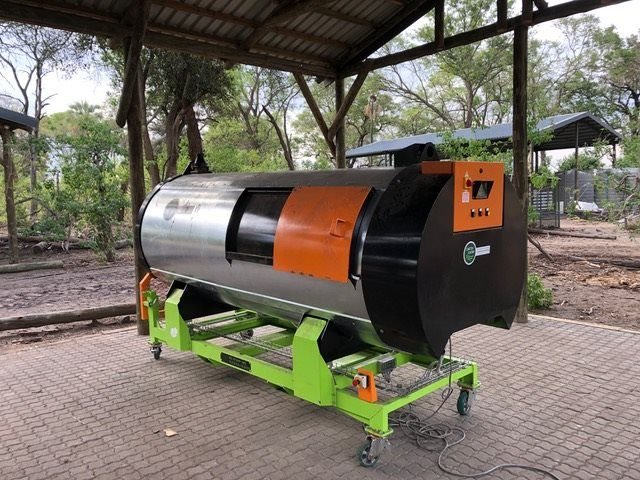
Subscribe & Follow
Advertise your job vacancies
On-site composting machine helps SA safari lodges combat food waste challenges
Waste management represents a real challenge for lodge operators. In the Okavango Delta, all lodge waste must be trucked out to waste management facilities outside of the delta; however given the nature of food waste, this waste stream needs to be treated on-site. Current methods include adding this waste into food waste pits.

Image Supplied.
Food waste is dumped into these pits where it rots. When the pits are not properly built and maintained, it is scavenged by a wide range of animals including honey badgers, baboons, hyaena, dwarf mongoose, insects and various birds which feed off the waste as well as breeding insect populations.
These waste pits are a risk to animal health as well as to staff and guests who could ‘bump’ into dangerous animals attracted to the waste from the lodge.
In order to solve these waste challenges Belmond Safaris (Savute Elephant Lodge), Great Plains Conservation (Selinda Concession) and Red Carnation (Xigera Safari Lodge) have installed Earth Probiotic’s on-site Earth Cycler composting machines at their various lodges and concessions.
Reducing food waste environmental impact
The machine is a fully automated composter which can process up to 3,500kg of food waste per month plus additional waste cardboard input – it energy efficient and can also be solar-powered.
As well as solving the issue of food waste through on-site composting, the composting machine requires the addition of carbon-rich material; this includes waste cardboard, egg cartons, newspaper, toilet roll holders, used paper serviettes and non-chemically contaminated kitchen towels.
As these carbon inputs need to be shredded the machine is now packaged with a small macerator (this macerator can also shred other waste streams including plastic and aluminium cans and thus reduce the volumetric weight of this material thus saving storage space and reducing waste removal costs).
As a closed system, scavengers are unable to access the food waste inside and new units have been designed to ensure that the composter will be able to withstand the inquisitiveness of a full baboon troop.
With a reliable data connection, the compost machine is also able to be remotely managed from anywhere in the world: software can be remotely updated, PLC program errors are easily fixed and, with this function, the whole composting process can be monitored with operators receiving feedback on the composting process.
With international guests becoming increasingly environmentally sensitive, on-site composting not only solve food waste challenges, it also demonstrates a lodge’s commitment to reducing its impact on the environment.





